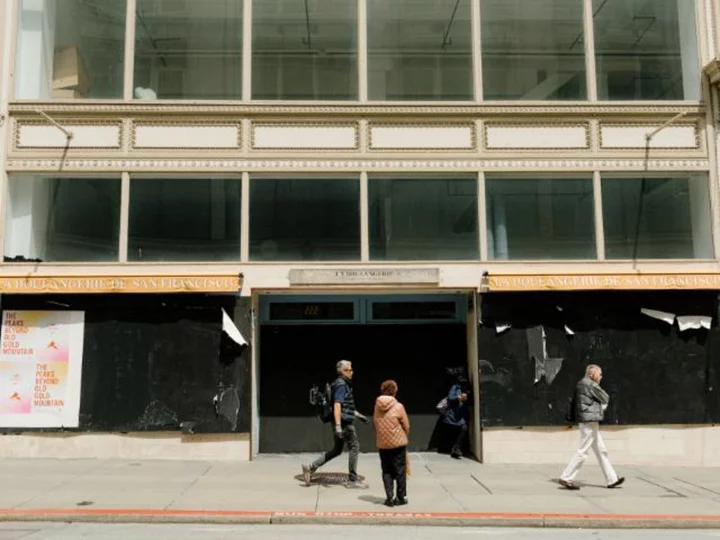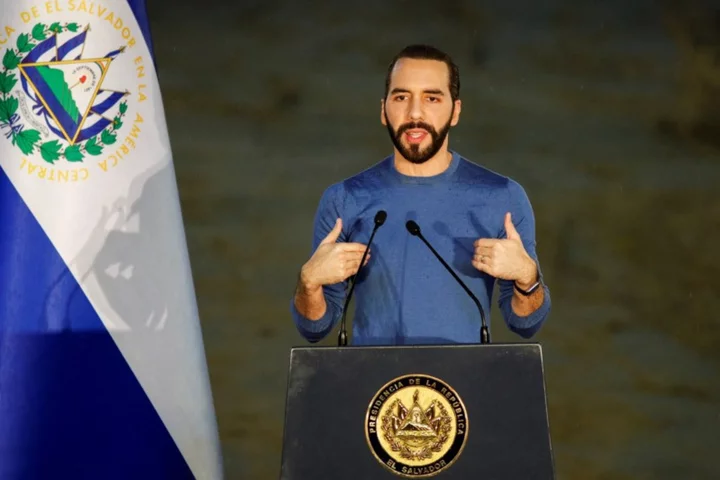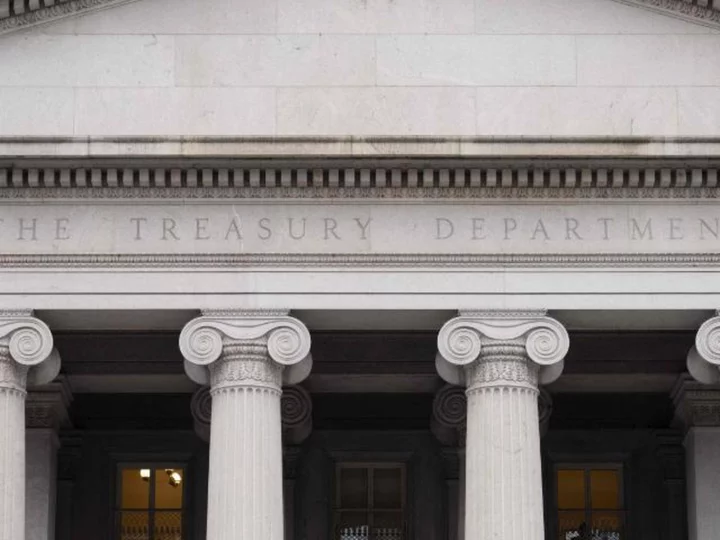In many ways, San Francisco's downtown is in dire straits. The city's once bustling Union Square neighborhood — teeming with shoppers, diners, and tourists — has suffered declining foot traffic and closing stores.
Stores in the area, once crowded with shoppers, are now replaced by papered-over windows and "Retail for Lease" signs, according to Google Street View, which was last updated in June.
While in-person activities in many major cities in the United States have rebounded since the start of the Covid-19 pandemic, San Francisco's recovery has been strained. The downturn of the city's Union Square is a microcosm of that struggle.
Mapping the exodus
Union Square has historically been a major commercial hub in the heart of San Francisco's downtown. It serves as a venue for public events and it's seen as a go-to tourist attraction in the city due to its high-end shops, departments stores and hotels. But lately, many well-known chains have announced exits from the area, including CB2, Anthropologie, and Nordstrom.
According to data provided to CNN by market research firm Coresight, nearly 40 retail stores have closed in Union Square's zip code since 2020, while dozens more have closed in the surrounding area.
Shopping mall operator Westfield gave up control of its San Francisco Centre mall in June. The company said its decision was due to "challenging operating conditions" in the downtown area. In May, a Westfield mall spokesperson told CNN affiliate KGO-TV that store closures underscore "the deteriorating situation in downtown San Francisco."
"A growing number of retailers and businesses are leaving the area due to the unsafe conditions for customers, retailers, and employees, coupled with the fact that these significant issues are preventing an economic recovery of the area," the spokesperson told KGO-TV.
A complicated decline in downtown
The reasons for downtown San Francisco's economic troubles are multi-faceted. The city's working population has yet to return to the office at the same levels as other major cities, adding to a decline in foot traffic downtown. According to US Census estimates, many residents have left the city: San Francisco County's population declined by more than 60,000 people, or more than 7%, from 2020 to 2022.
In addition, San Francisco's downtown has experienced a rise in its unhoused population. Thirty percent of the nation's homeless population live in California, and most attribute their situations to the high cost of housing in the state, according to the results of a University of California, San Francisco survey released in June. The median sale price of a home in San Francisco is currently $1.32 million, making it 214% more expensive than the national average, according to data from Redfin.
As San Francisco's downtown area has emptied over the last three years, property crimes and retail thefts have risen, according to San Francisco Police Department data. Elon Musk, whose company Tesla used to be headquartered in nearby Palo Alto, said in a recent tweet that San Francisco felt "post-apocalyptic."
Violent crime in San Francisco has remained relatively low in recent years compared to other major cities in the United States, however.
Tourism slows down
One often-overlooked reason for the economic slowdown in Union Square is a drop in travelers since the pandemic.
Travel to San Francisco has yet to recover fully to pre-pandemic levels, according to data from San Francisco Airport.
Lori Lincoln, a vice president at San Francisco Travel — the official destination marketing orgnanization for the County and City of San Francisco — said that her company estimates visitor spending from all countries will reach 2019 levels by 2024, and visitor volume is expected to recover by 2025.
Tourism is the largest generator of outside revenue into San Francisco, and tourism from Asia is an integral part of San Francisco's overall economy, Lincoln said via email.
Travelers from Asia outspent those from the Americas and Europe in San Francisco in 2019 and 2023, according to data compiled by Oxford Economics. In 2019, tourists from the Asia-Pacific region spent $3.1 billion in San Francisco and neighboring San Mateo counties, compared to $1.5 billion spent by European travelers and $1 billion spent by travelers from the Americas.
Even though tourism from Asia hasn't fully rebounded yet, travelers from the Asia-Pacific still spent $1.9 billion in 2023, continuing to outspend tourists from the Americas and Europe, according to Oxford Economics.
According Lincoln, China, specifically, was San Francisco's largest overseas source of visitor spending in 2019.
But China's zero-Covid policy, which applied strict lockdowns to many of the country's major cities for more than two years, slowed travel to San Francisco — and most other places — to a near halt.
Time for a turnaround?
In a statement to CNN, San Francisco Mayor London Breed's office said that "while San Francisco continues to recover from very serious economic challenges exacerbated by the pandemic, Mayor Breed is encouraged by the significant progress the City has made to revitalize Downtown as part of her Roadmap to San Francisco's Future."
Breed's plans include increasing office attendance by "identifying and recruiting strategic sectors that support San Francisco's resilience," including AI companies. Her plan also includes expanding the city's police force and amending city codes to convert some commercial buildings into residential properties. Breed suggested recently tearing down abandoned retail space, including the San Francisco Centre.
But while a flood of stores left San Francisco in recent years, the tide may be turning.
Chicago-based hotel investor Oxford Capital Group announced Tuesday that it would make a multi-million dollar bet on San Francisco's downtown with the debut of four rebranded hotel properties in the area.
"We are sanguine about the long-term prospects of downtown San Francisco, which has proven resilient over a number of economic cycles and challenges," said Sarang Peruri, the chief operating officer of Oxford Capital Group, in a statement.
Additionally, Ikea recently opened a three-level, 52,000-square-foot store just a few blocks from Union Square.
Breed's office told CNN that the city is "seeing progress," pointing to new businesses that have opened in Union Square.
"The arrival of @IKEA is great news for the City's economic recovery that will bring local jobs and excitement to the Union Square area," Breed tweeted. "We are thrilled to welcome IKEA to be part of San Francisco's future."









